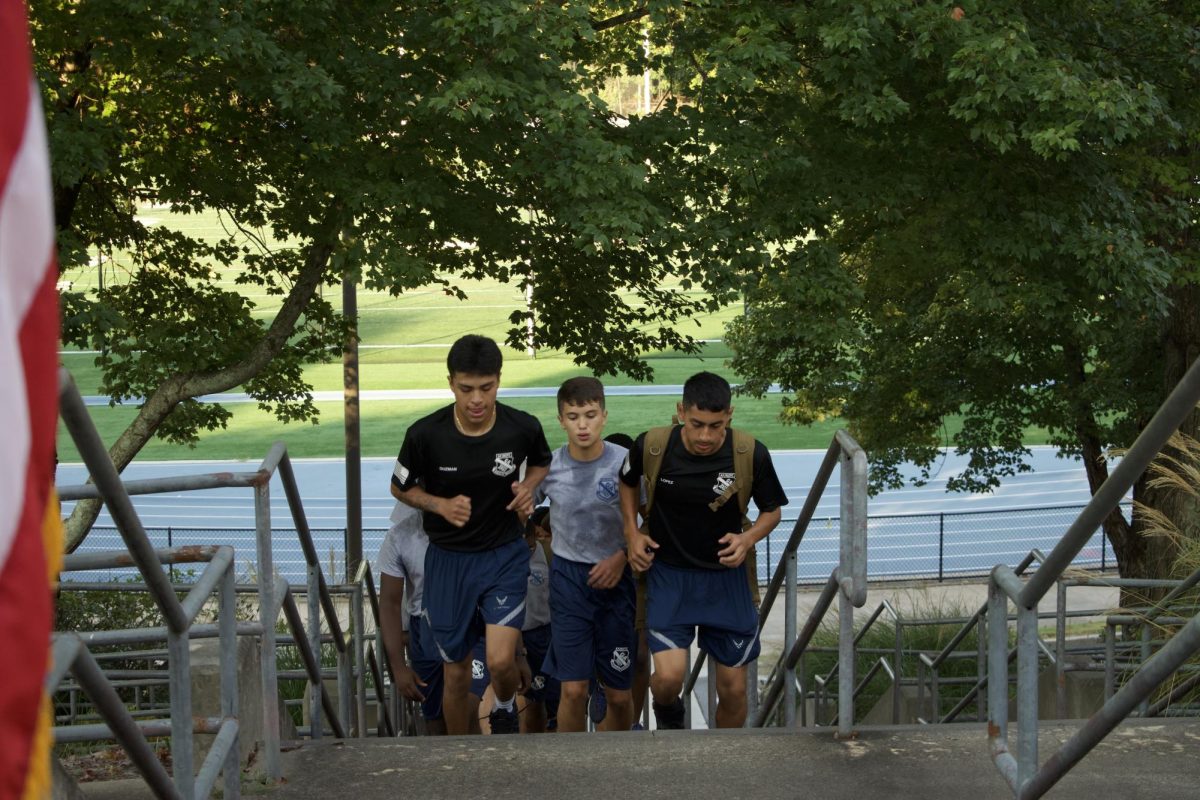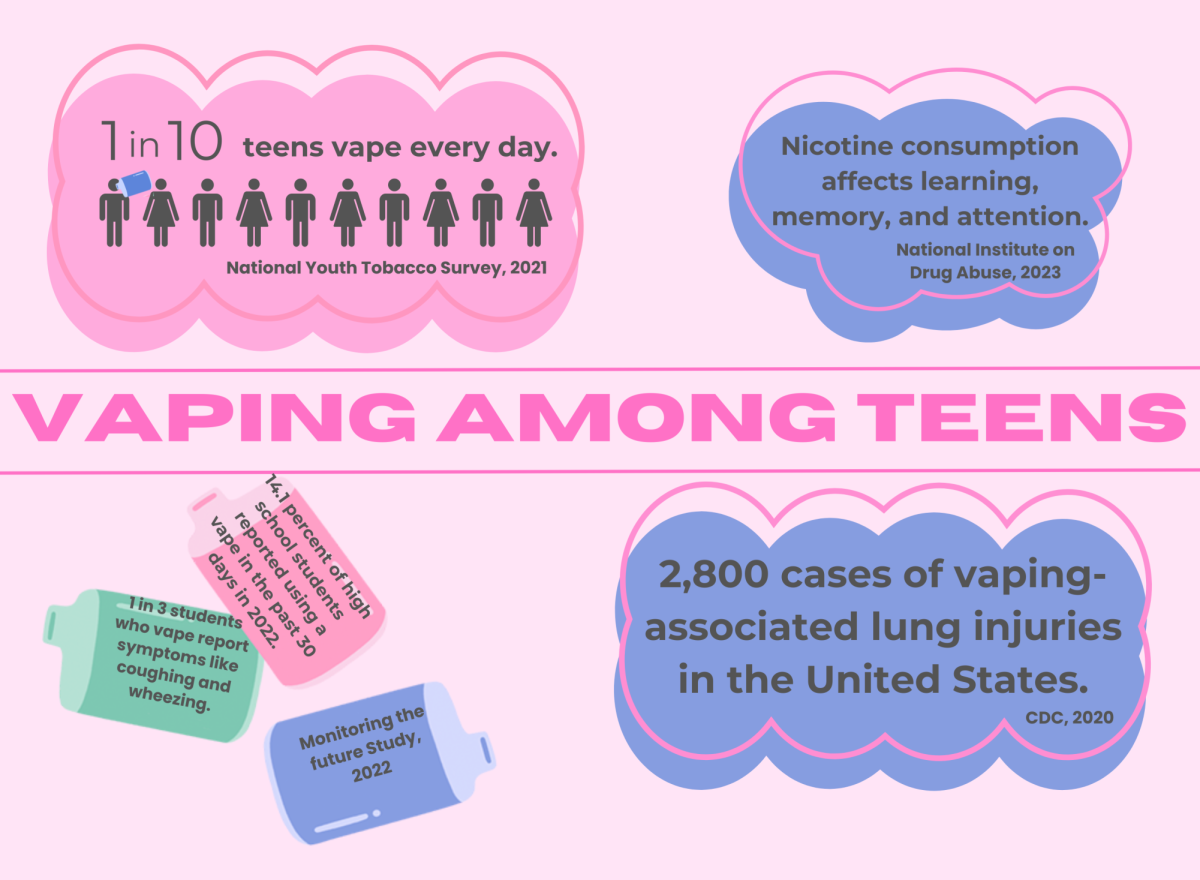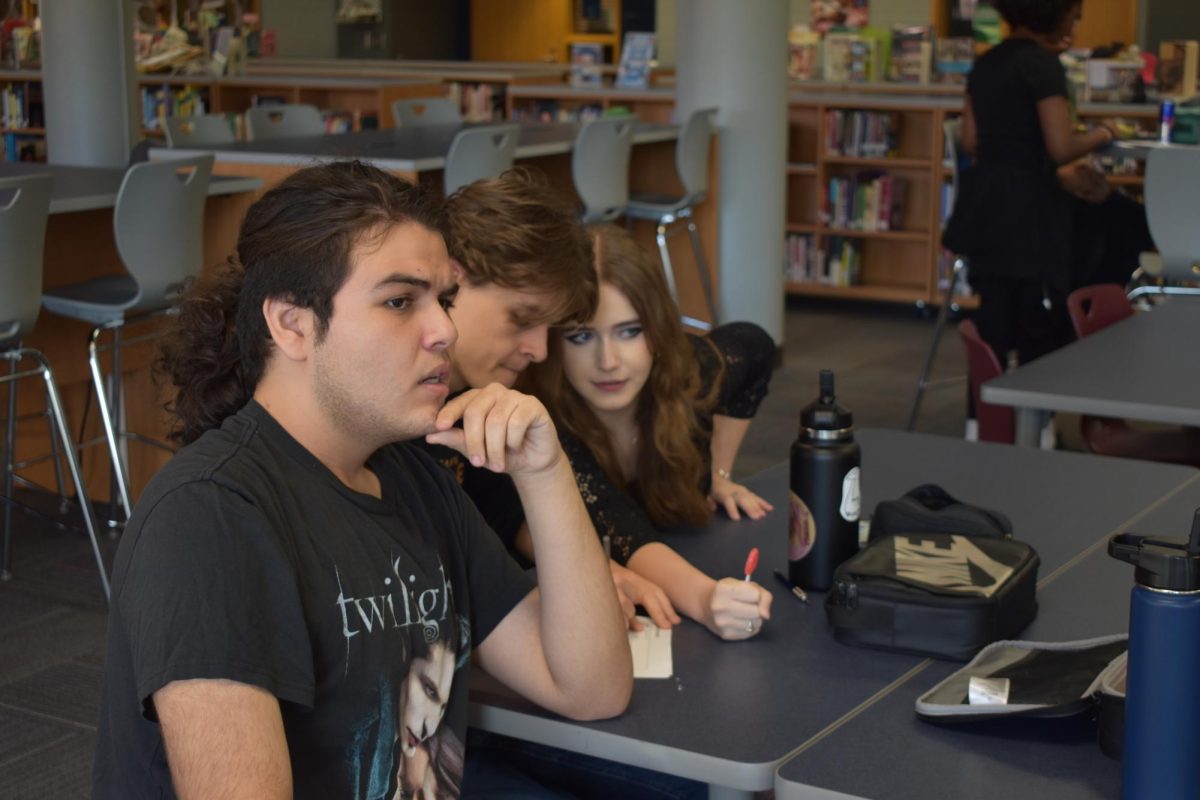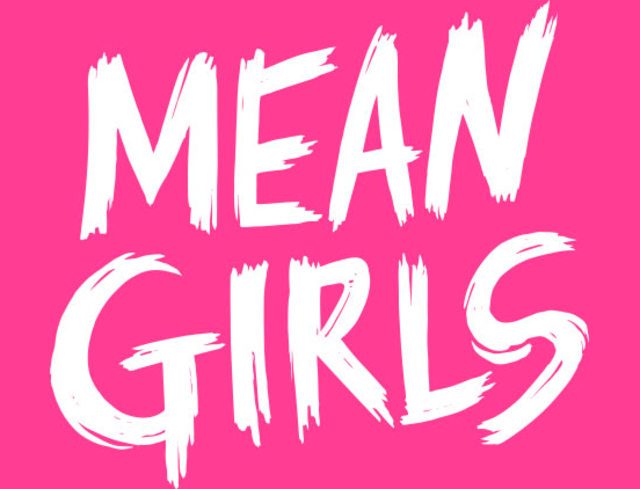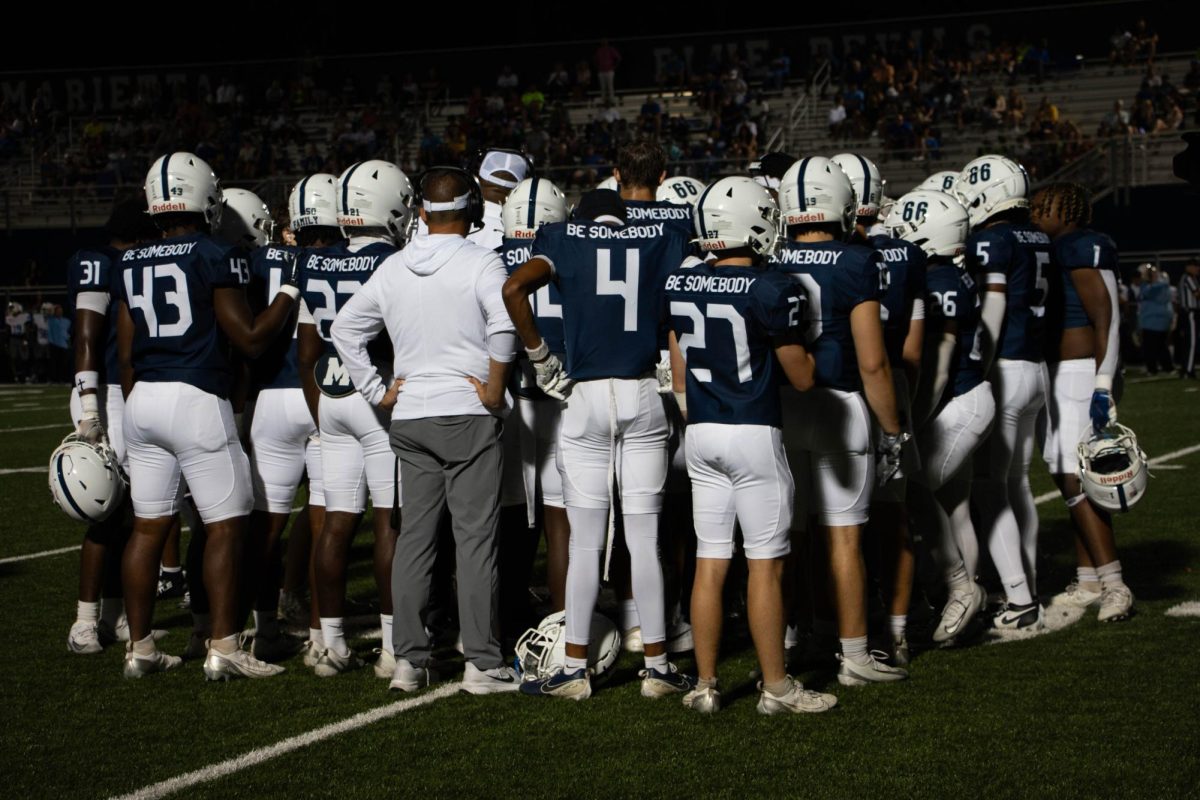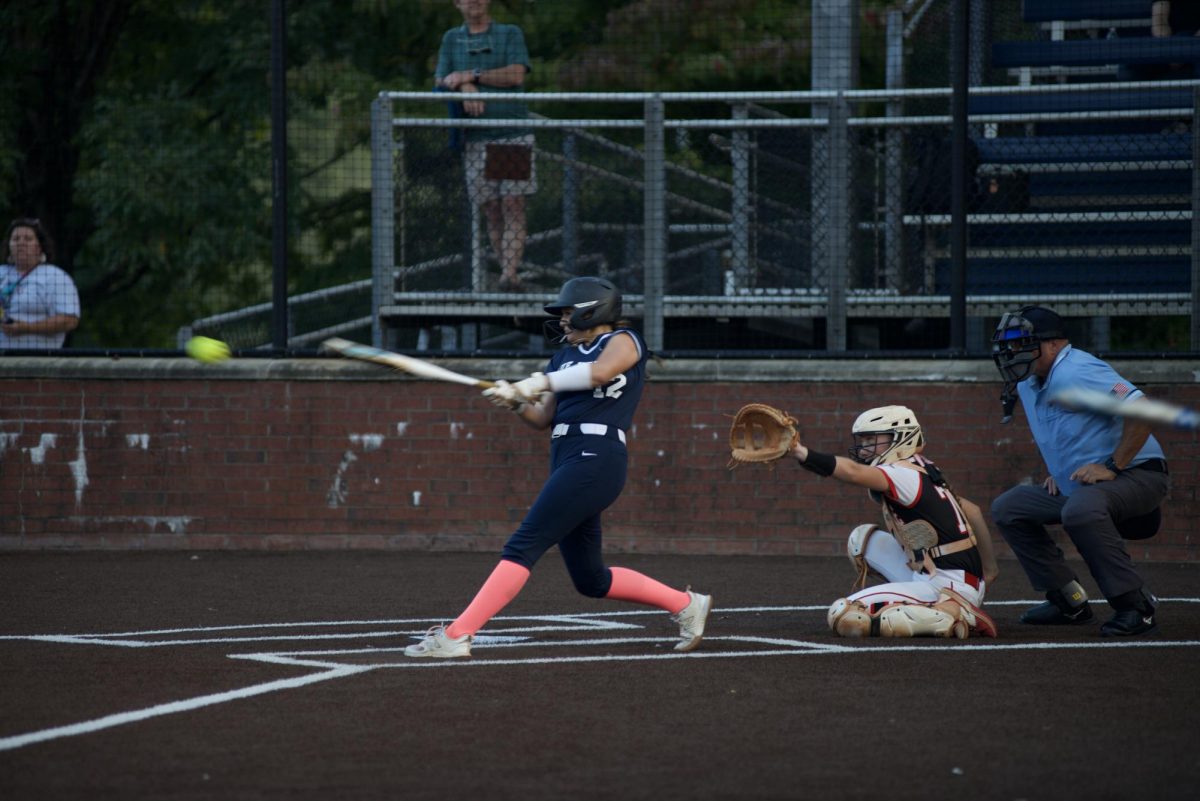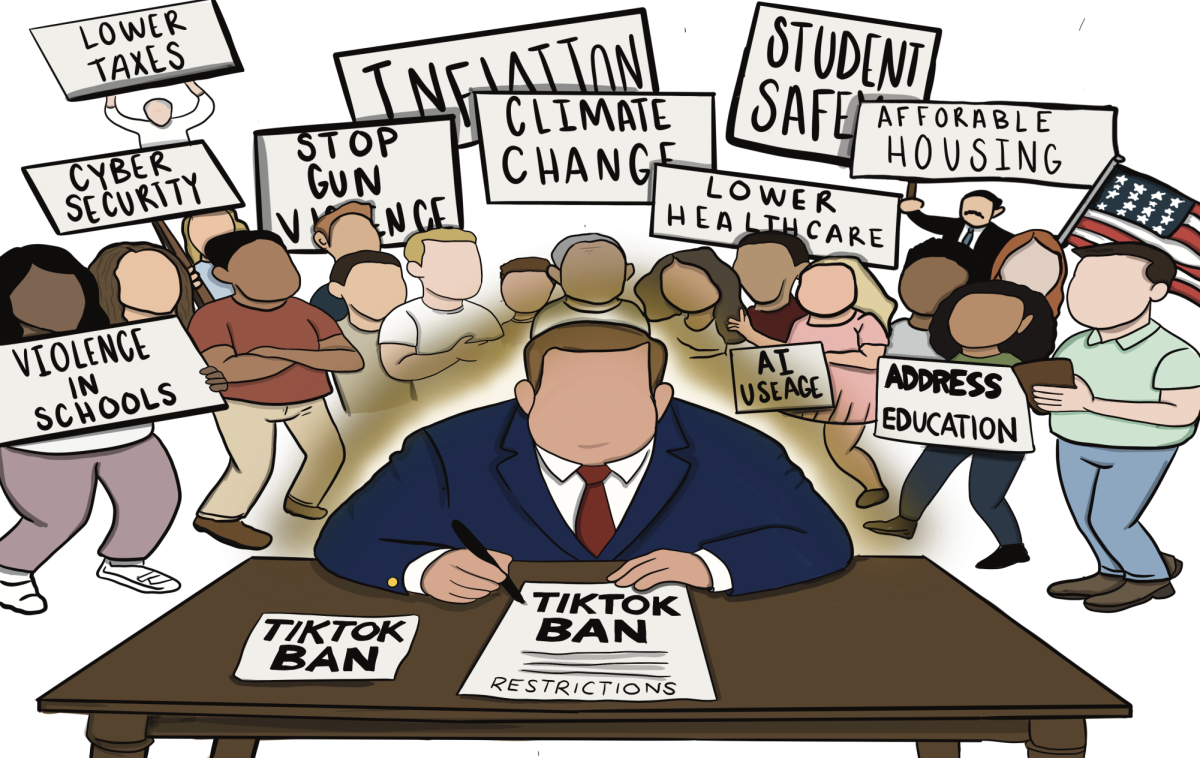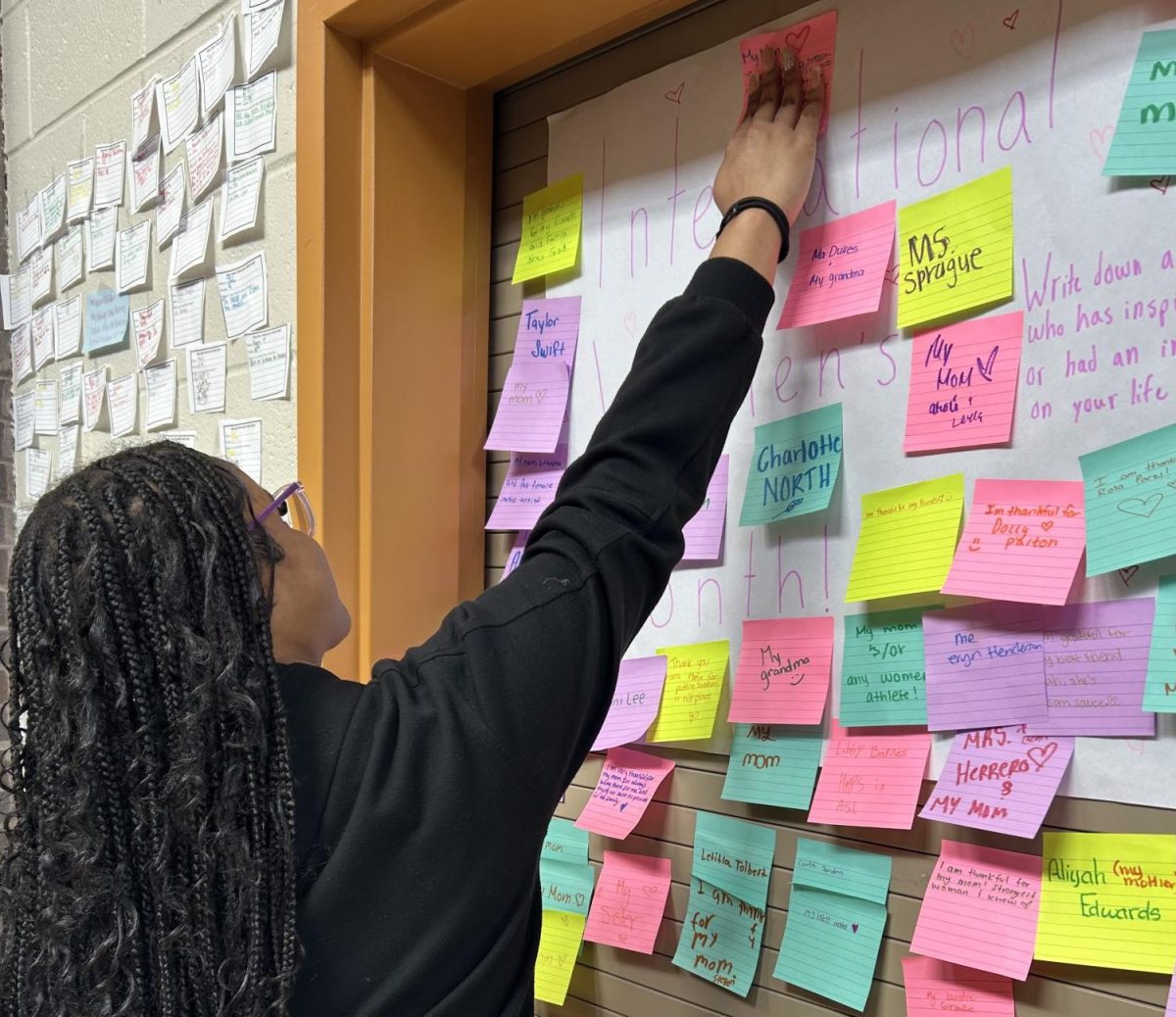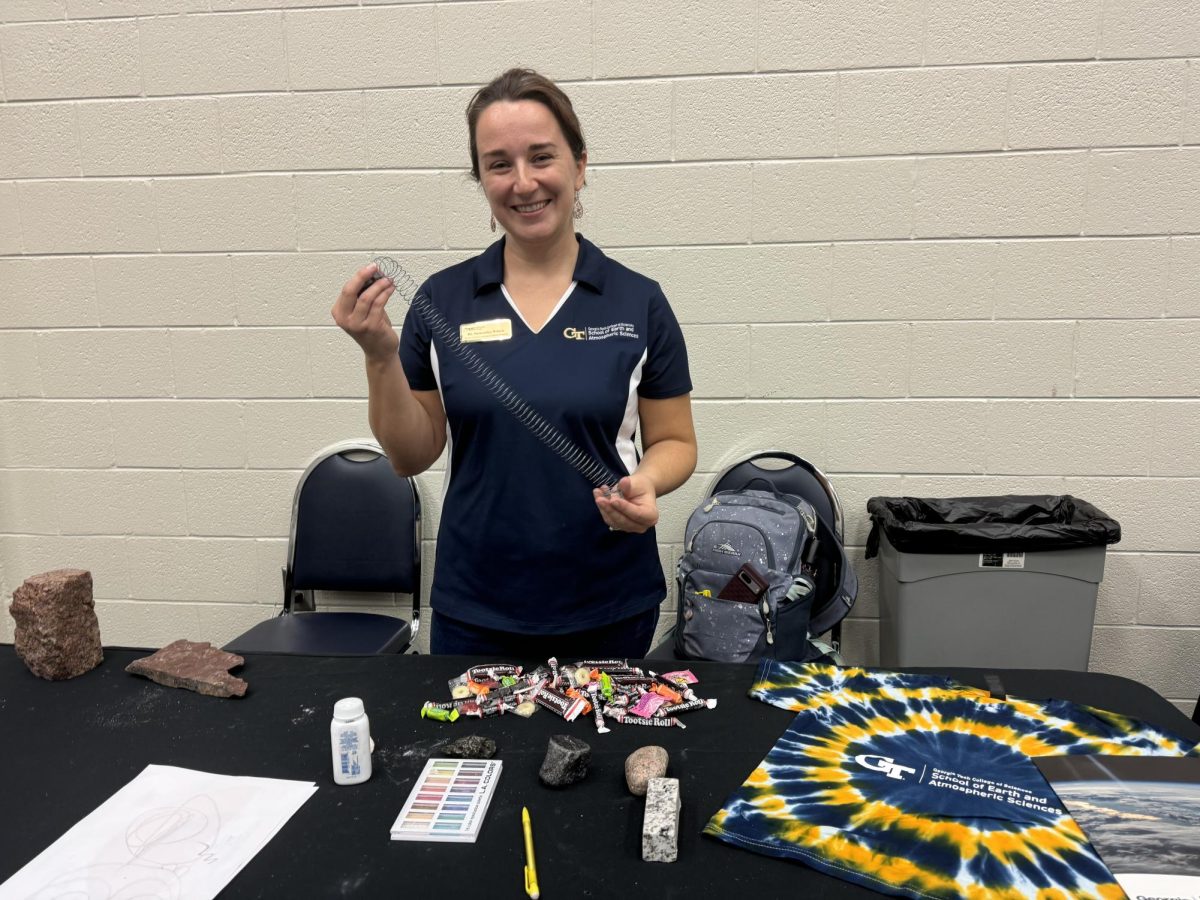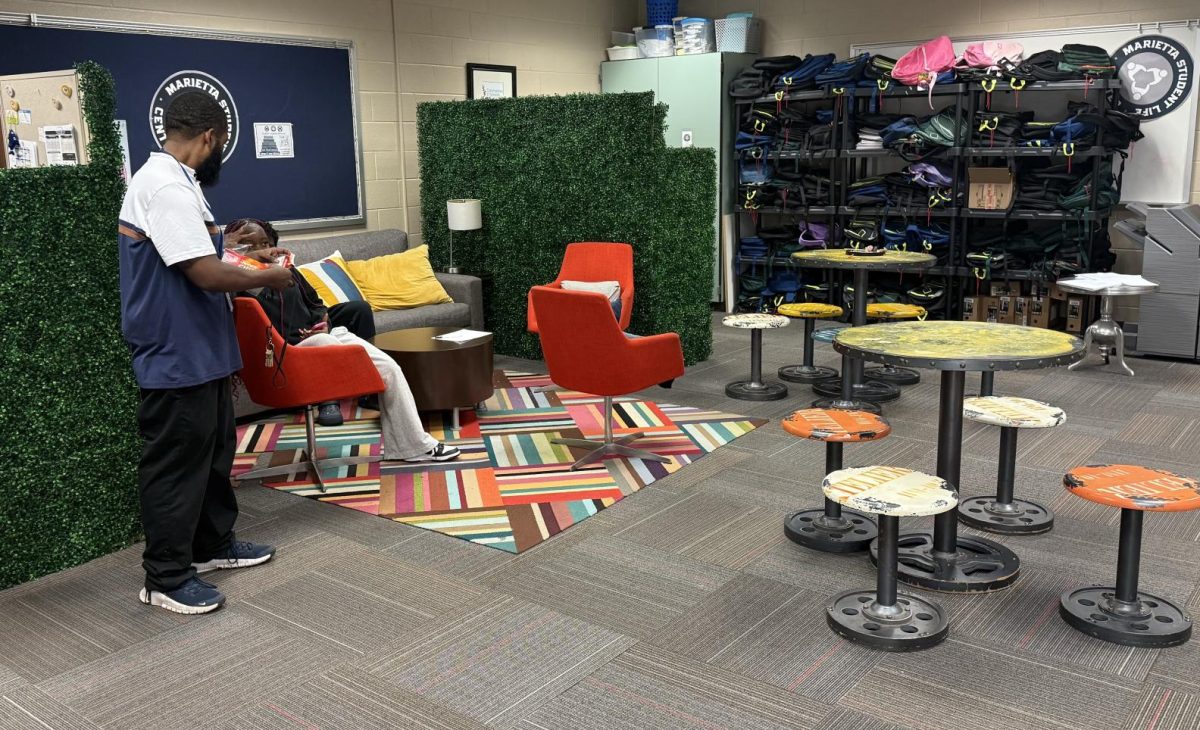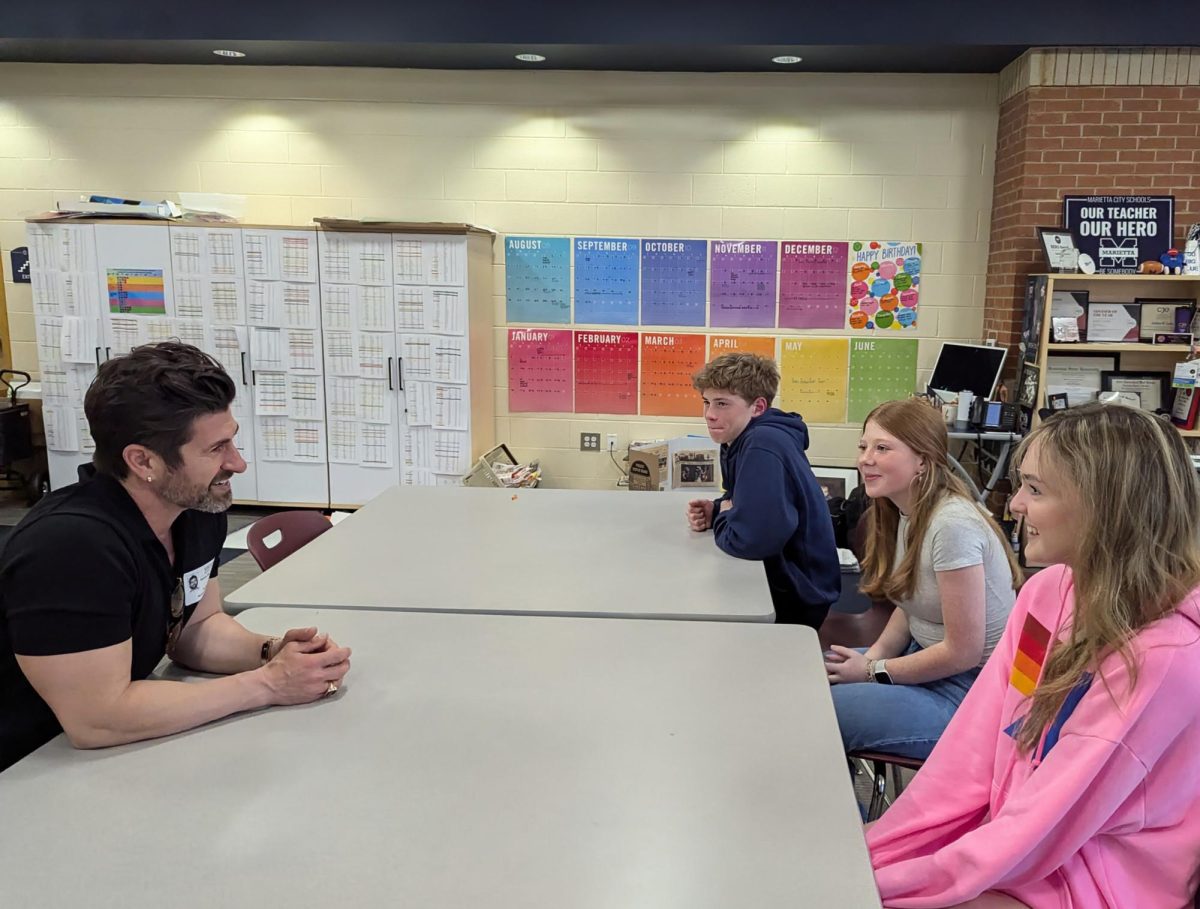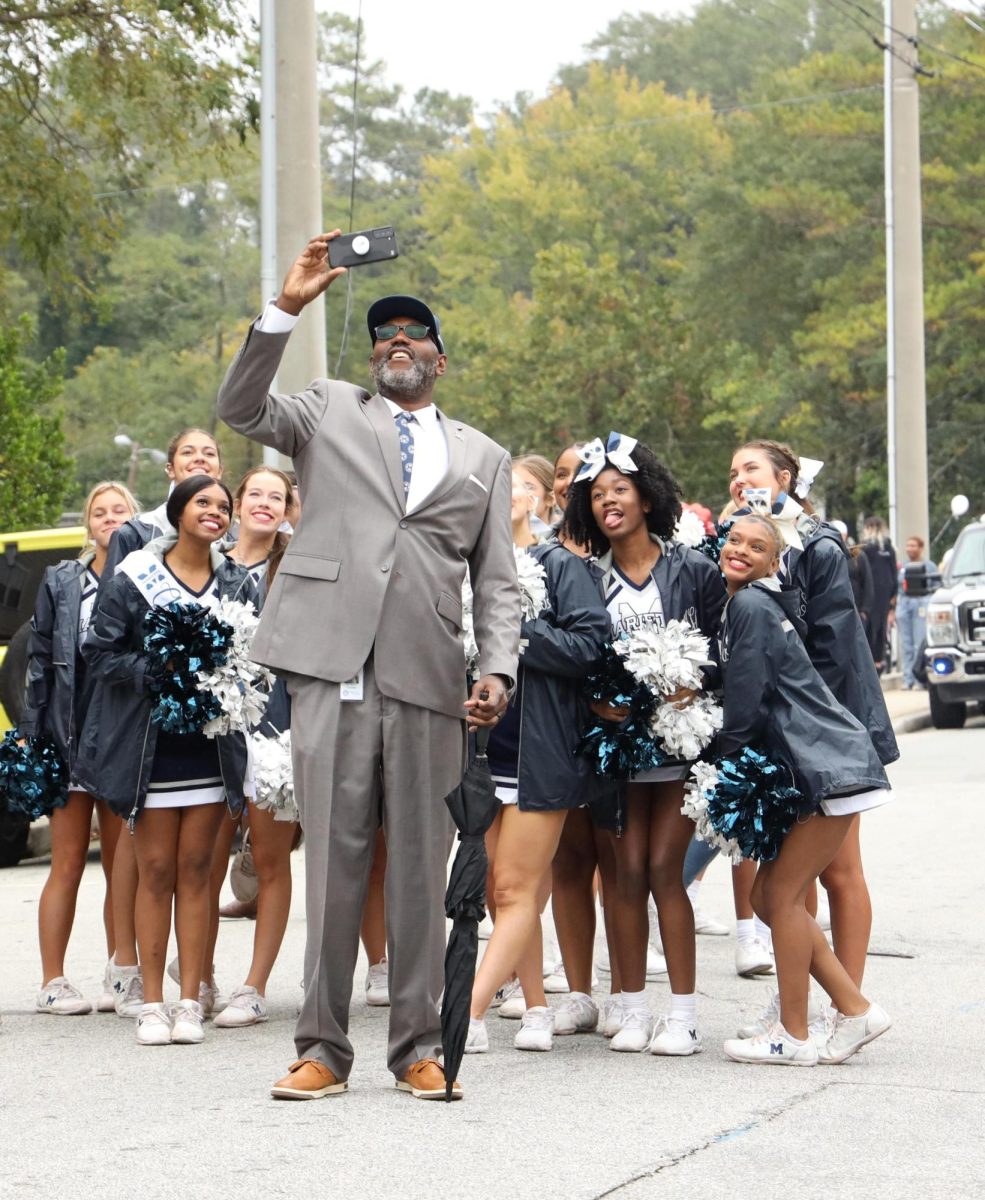Another new school year, another new principal, and another new set of rules and enforcement. According to the new principal, Dr. Marvin Crumbs, the main focus is to set the standard for excellence.
“We are dealing with changing mindsets. Rules establish the mindset. Even though people struggle with establishing those rules for themselves, our job, as adults in the building, is to help [students] see the benefit of having the standards,” Dr. Crumbs said. “Rules create the standard, and the standard creates a longevity of excellence.”
The guidelines being enforced with updated consequences include cell phone, dress code, tardy and absence policies, with various consequences for students and teachers who choose not to abide by them. These new regulations have been established by the administrative team with the support of Superintendent Rivera and the Marietta City Schools Board of Education.
“It’s no different than what you experience when you graduate from college, or you go into the workforce, there will be requirements regarding how you come to work,” Dr. Crumbs said.
Dr. Crumbs wants focus to be on instructional time to create the ideal classroom environment. With many consequences that put students’ extracurricular experiences and more on the line, the new policies should significantly impact how the school conducts itself.
Students and teachers have varying opinions on the impact of the new rules and enforcement.
Phone Policy
A new phone policy is being enforced. The policy explains that students cannot use cell phones, headphones, or other electronic devices during any instructional time at school.
“The class instruction is more well-received and productive because we removed this distraction, and I’m hoping that it carries on and then becomes more pervasive,” Dr. Crumbs said.
If a student violates the device policy, various consequences must be faced. The student handbook expresses that the first offense is a warning, the second offense is a warning with a student’s parent or guardian being contacted, and the third offense is a required referral to an administrator, considered a major incident. Each offense must be recorded in Aspen, a school-wide website for students’ grades and policy offenses.
Students have differing opinions on the new policy and how it impacts their learning. Some agree that while it is a difficult change, the new approach has benefited their understanding.
“The phone policy, that’s pretty bad because we like having our phones out in class and stuff. [My learning] is probably better though because we can pay attention,” Enoch Phillips (10) said.
While it has helped students to focus during instructional time, some think they should be able to regulate themselves with the freedom to use devices of their choice.
“I think they shouldn’t be so strict about it, especially when we’re getting our work done and everything,” Andrew Liedke (9) said.
Along with students, the device policy has also greatly impacted teachers for this upcoming school year.
“I get it. I think phones have become a huge distraction…I have more students engaged in class, more students doing their work when it’s assigned, and participation in class because they’re not distracted by whatever’s going off on their phones,” Jessica Vaughn, an alumna and current teacher at Marietta High School, said. “I think it’s challenging as a teacher because I’ve been used to using phones in the classroom, but I respect it and understand that it was a needed change.”
In previous years, she had students submit work electronically by scanning, whereas students must now do this at home.
“I think that it’s effective to a degree but there are still always going to be some reason to use [a phone], like the internet is not working or a website the school has blocked,” Joy Henry (11) said. “I can see why it could be bothersome to some people. Regardless, I just want to be able to listen to my music.”
Dress Code
Another disputed policy that arrived is the updated and heavily enforced dress code. Chests, backs, and midriffs are to be covered at all times, pajamas may not be worn, any bottoms cannot be shorter than mid-thigh length, undergarments must not be seen, and headwear such as hats and hoods are not permitted inside the school building. While this dress code has been similar in previous years, the main change is the level of enforcement. Enforcement results in consequences, including parent contact and possible in-school suspension.
“I think it’s being enforced more. I think we have always had a dress code; it just hasn’t been specified, and it hasn’t been enforced. So now I think the emphasis is applying it, making students adhere to that dress code, and applying consequences,” Vaughn said.
Students have mixed feelings about the new dress code’s enforcement; some feel personally targeted by the effects of it.
“The new dress code policy is racist and sexist, and they only enforce it because they care more about how we look than the education they provide at the school…And they enforce the dress code to people of color and women,” Bella Gantt (11) said.
Principal Dr. Crumbs explained that the dress code must be implemented for everyone only because of the main goal: providing a more productive environment for students that meets the workplace standard.
“I’ve yet to be at a school where that has not been the statement or the battle cry for pushback against a dress code. I want everyone to know there is a reason, and it has to be that way,” Dr. Crumbs said.
He emphasized the importance of the dress code benefiting everyone’s education regardless of how they feel about it.
“The most important thing to do is try to put in place things that benefit everyone, even if there is a minority that disagrees,” Dr. Crumbs said.
Others believe that expression is essential to being yourself at school.
“I just believe that we should freely express ourselves, and other people’s opinions should not get in the way,” Tania Paredes (11) said.
Some students don’t get impacted by the dress code. “I don’t care too much about the dress code because I don’t wear super short shorts or anything,” Enoch Phillips (10) said.
It could also be argued that the dress code prepares students for the future in their chosen profession.
“…There’s dress codes for everything, so having it in school, I agree with it, and I think that the rules we’re asking them to follow aren’t that bad,” Vaughn said.
Tardies and Passes
Other policies relating to hall passes, tardies, and absences are being enforced more. Students must always use a pass when leaving their classrooms for excursions such as the restroom, nurse, lunchroom, and more. As explained in the student handbook, each hallway has a hall pass with a different color resembling the hallway, which helps teachers know where students should be and where they came from. In the first and last 10 minutes of instructional time, students are not permitted to leave their classrooms under any circumstances. If students are late to class, this counts as a tardy and is recorded to track when consequences must occur for the student.
Consequences of not abiding by these rules include contact or meeting with a parent or guardian, in-school suspension, and revoked admissions to school-sanctioned events. A sports event is an example of a school event that a student could be forced to miss as a consequence of their actions (regarding tardiness, passes, or absences).
“I don’t appreciate that we have less time between classes, and if we’re without a pass, we have to go to ISS. Once we have ISS, we can’t go to a sports event to support our school,” Wiley Barile (11) said.
Principal Crumbs said that students should meet the standards before getting the opportunity to participate in the out-of-school events that Marietta has to offer.
“Anyone who cannot abide by the rules and positively contribute to Marietta High School should not be able to benefit from extracurriculars and all the great stuff that happens outside of the classroom and outside of the school day,” said Dr. Crumbs.
The new rules are extensive and heavily enforced. Although meant to affect a student’s discipline and future positively, the response to these new policies has had mixed reactions. Students have opened up and demonstrated the conflicting views within the student body. The contradictory viewpoints have been shown in scenarios where students feel unaffected by the rules, and some where students feel personally targeted by them.
Administrators have approved this policy because they believe it encourages a learning experience with increased productivty for students. The vigorous enforcement of the new guidelines demonstrates the staff and administrator’s belief that they will contribute to a student’s future by providing a more mature environment than in past school years. This means that students behavior regarding school will improve as the rules are enforced. “So, with the new tardy policy, we definetly have had fewer tardies in the morning, now when it’s raining that’s a whole other story,” Alice McHugh, a staff member working in the front office, said.


